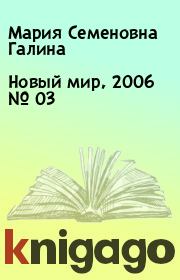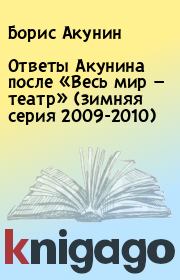Роллан Шакенович Сейсенбаев - День, когда рухнул мир
 | Название: | День, когда рухнул мир |
Автор: | Роллан Шакенович Сейсенбаев | |
Жанр: | Публицистика | |
Изадано в серии: | неизвестно | |
Издательство: | неизвестно | |
Год издания: | - | |
ISBN: | неизвестно | |
Отзывы: | Комментировать | |
Рейтинг: | ||
Поделись книгой с друзьями! Помощь сайту: донат на оплату сервера | ||
Краткое содержание книги "День, когда рухнул мир"
Роллан Сейсенбаев – признанный классик казахской литературы. Его романы, повести, рассказы издавались в самых престижных журналах и издательствах России, Англии, Америки, Германии, Италии, Венгрии, Польши, Японии и Кубы.
Роллан Сейсенбаев награжден «Золотым офицерским крестом» Польши, «Золотым Рыцарским Крестом» Венгрии, орденом «Дружбы» Кубы за заслуги перед литературой. Он является обладателем множества международных литературных премий.
Крупнейшие критики мира называют рассказы Роллана Сейсенбаева жемчужинами. Поистине Он уникальный Мастер слова.
Роллан Сейсенбаев стал своеобразным эталоном современной казахской интеллектуальной прозы.
Читаем онлайн "День, когда рухнул мир" (ознакомительный отрывок). [Страница - 2]
«OK, Mum, don’t worry, I’ll be there.»
«We’ll be expecting you, son… I hope I haven’t disturbed you, son. You’re probably as busy as always, aren’t you? Don’t overdo it, I beg you. Don’t forget that your father’s heart did not hold out, so do be careful, be careful…»
«Don’t worry, Mum, don’t worry, I hear you. I’m fine.»
I rang off; there was a short ring. I made a note on the desk calendar – 5th AUGUST, ANNIVERSARY OF FATHER’S DEATH. There was still one and a half weeks till the fifth. I sat down at the desk again, but of course, it was all gone. The words, as fluffy as cotton wool, would not rest on the white paper, and thoughts, what thoughts – where are they? I always breathe heavily, but today – what’s happening to me today?…
«It’s a bad day today,» I explained to myself.
It’s a bad day. I pushed aside the fountain-pen, crossed my hands and put my head on the table, on these hands of mine.
I closed my eyes.
«Father, if it is not given to the living to comprehend the pain of the earth, then how do the dead sense it?»
«The dead are wiser than you, the living…»
I moved forward. I wanted to hold my father for a while, but at that moment I sensed the yawning gulf between us – he in the other world and I in this one… I wanted so much to help him get out of the grave, that I reached out to him with both hands.
«Be careful, you could fall and kill yourself,» warned my father who was wrapped up in a torn white shroud.
… And so disaster came to the people of the Genghiz Hills in the summer of 1953 – it came in a single hour. The children, tending the goats and sheep behind the village, all heard the terrible cries, screams and women weeping. Leaving the sheep and goats on the steppe, jostling each other as they ran, their bare feet flashing, they rushed to the village. What was taking place there was unimaginable – people were embracing each other, saying farewell, making vows and promises, shouting and weeping. Commotion, confusion, chaos – and we young boys were standing with our mouths open, unaware of the misfortune which had befallen the inhabitants of our quiet and cosy village. Perhaps, war had broken out? It dawned upon some of us that it might be a war against the Americans or some other imperialists and we greedily began to examine the enormous military vehicles arid the soldiers rushing everywhere, all of whom seemed to have appeared from under the ground. «Look, one, two, three. Each of these vehicles has ten wheels,» said Serikbol.
«This is really something… Ten, just like in a story,» we commented as we peered in trying to get into the cabin.
«If this is war, I’m going to join the partisans,» said Serikbol. We became envious, as he was the first to declare this – after all, each of ’ us felt that he was either a soldier or at the very least the «son of a regiment».
«Come on, go home, lads!» shouted a lieutenant-colonel.
«Uncle, tell us – who are we fighting?» I asked him timidly.
«There is no war. Enough of your prattling. Off with you! Home! Your parents are waiting for you. You’re going to be evacuated!» said the lieutenant-colonel angrily.
At that time we did not know what «evacuation» meant, but we immediately had a premonition of foreboding. This misty and mysterious word emanated fear and uncertainty.
Grandfather was oiling the wheels of the bullock cart in the yard.
«Give me a hand, grandson,» he beckoned to me.
I found out what was happening from him.
«We are being evicted,» he replied morosely.
«But, where to, why?» I said in amazement, secretly rejoicing at the unexpected turn of event – I, a seven-year-old, was tired of spending the summer holidays in the village, tending the hateful sheep. I had by that time read Mark Twain and yearned for new experiences with my whole being. I longed to travel and was ready to seek adventure even at the ends of the earth.
«To the town,» answered grandfather, reluctantly.
«Then, why are you preparing the bullock cart, if we are moving to town?» I said in surprise, and this suddenly utterly irritated grandfather.
«The town, the town,» he mimicked someone. «They’ve all pricked up their ears, repeating like parrots, ‘the town, the town’. But what are we supposed to do with the livestock? We can’t take them to the town, can we? Personally, I’m going to the hills. And you, what have you decided to do – are you coming with me or are you going with your mother?» Grandfather grilled me with his eyes and I looked away, without answering. I wanted so much to go to town! Auapa, my grandmother on my mother’s side, lived there. Strict and imperious, she loved me and talked to me as if I was an adult. Thirty-five years have passed but I still can distinctly recall how, in the evenings, we used to sit on a city bench and engage in simple conversations. She spoke about everyone with wisdom – about her daughter, my mother, and her son-in-law, my father. Strangely enough, it seemed to me that she loved her son-in-law more than her daughter. She loved my father and she loved me.
And I did not raise my head, not knowing what to say to grandfather.
«So, it means that you’re going to town, eh?»
It was difficult to judge by grandfather’s voice whether he was really asking or jeering at me.
I blushed and tried to evade his question.
«Let’s wait and see what dad says…»
«What’s there to see? It’s plain enough. You’re no golden eagle, no, no golden eagle,» grandfather cut me short. «Very well, off you go, I’ll get by without you.»
I shuffled about awkwardly near him and then returned home. Mother and grandmother were tying up bundles; there was a real pogrom taking place in the house. My younger brother, hanging on to grandmother’s skirt hem, was hovering under foot, whimpering. My one-year-old little sister was asleep.
«Take him outside and play with him,» said mother, pointing to my brother.
I took him in my arms and stepped into the yard. Grandfather silently looked at us both and then took up where he had left off.
«Not a golden eagle, not a golden eagle! As if he himself is a lion!» I mentally scolded grandfather.
Then we heard loud voices, a woman’s weeping and several people entered our yard.
«What are we to do? We are lost! We are all lost!» wailed our neighbour, Grandmother Bokey.
«They say, this bomb possesses a barbaric strength, it is able to wipe all of Genghiztau off the face of the earth,» old Kabish echoed her.
«This bomb is worse than the American one which annihilated two Japanese cities. That one was atomic, and this one is hydrogen,» said the physics teacher.
«Oh, Moldabergen, what should we do?» walled Grandmother Bokey.
«Prepare for the journey,» snapped grandfather sternly.
«But where’s your son?» Bokey suddenly inquired.
«Where should he be? He’s at work. They’re folding a meeting with army officers at the District Committee,» explained Kabish.
«The authorities will decide what we are to do. A boss’s command is law unto his subordinates,» said the physics teacher.
He had a reputation for being an honest and sober person. And he was «ever a coward – he had left for the front a private and returned from the war a lieutenant…
„What are we going to do with the livestock?“ said Kabish in confusion.
„Why, don’t you know?“ said grandfather, looking at him sneeringly. „We’ll take them to the hills. Or perhaps you want to take your Sheep into town? In that case, the townsfolk will call you a mutton-head.“
„Yes, of course, we can’t take them into town,“ agreed Kabish promptly.
„And anyway, what are you hanging about for? We’re leaving today or tomorrow, you know, and you’re all standing about chattering idly.“ Grandfather --">Книги схожие с «День, когда рухнул мир» по жанру, серии, автору или названию:
 |
| Мария Семеновна Галина, Владимир Иванович Новиков, Александр Викторович Иличевский и др. - Новый мир, 2006 № 03 Жанр: Современная проза Серия: Журнал «Новый мир» |
 |
| Юрий Васильевич Бондарев - Редкий дар Жанр: Публицистика Год издания: 1973 |




